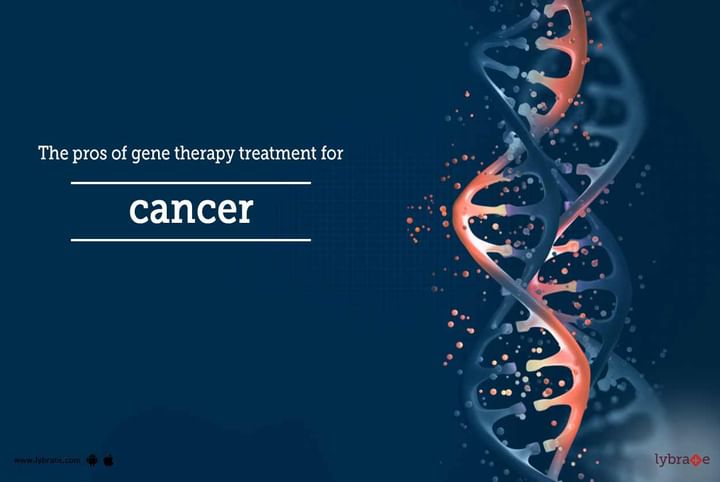The pros of gene therapy treatment for cancer
Over the years, genetic diseases and gene-related ailments have been responsible for reduced quality of life and high mortality rates. Some people inherit genetic faults that increase the likelihood of developing certain types of cancer. Groundbreaking research into cancer treatments has suggested gene therapy as an effective treatment approach to cure the disease.
Gene therapy involves changing the genetic cells to treat or prevent cancer. It adds a new gene or replaces a faulty gene in an attempt to improve your body’s immune system or cure the disease. The therapy has been in practice for effectively treating various forms of cancer, along with a range of other diseases, like heart disease, cystic fibrosis, diabetes, AIDS etc.
How is Gene Therapy performed?
Getting genes into the cancer cells is a somewhat difficult aspect of the therapy. Usually, a carrier, known as a vector is used to take the gene to the cancer cells. Viruses are the most common of all carrier types used in gene therapy, as they can easily enter the cells and deliver genetic material. These viruses do not usually cause serious diseases but they may still lead to mild flu-like symptoms. Some viruses, in fact, are directed only towards cancer cells and not the healthy cells.
What are the Pros of Gene Therapy?
Research into gene therapy for cancer has been ongoing for decades now. Researchers claim that the therapy is associated with the following advantages –
- The effects of gene therapy are timeless and long-lasting. The therapy limits chances of cancer remission by altering a defective gene with a functional one. Moreover, the therapy is not a remedy just to an individual diagnosed with cancer; it covers the entire generation. When you eliminate a gene that makes a person likely to develop breast cancer, he/she would be transferring the new functional gene to their offspring, and not the defective one.
- Gene therapy can get rid of diseases and enhance the quality of life. Certain forms of cancer, which would have been incurable initially, can now be managed and even eliminated after undergoing gene therapy.
The possibilities of gene therapy in treating cancer have so far shown promising results. Many of the clinical studies have shown success in fighting specific forms of blood cancer, like leukaemia. The therapy continues to remain an important and active area of research focused on developing a new, effective treatment for a range of genetic diseases.


+1.svg)
